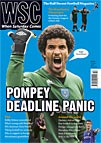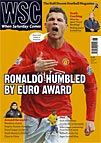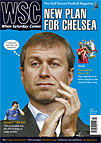What are the expectations for the team?
Thanks to the apparently golden touch of Guus Hiddink, probably greater than ever before. Russia teams of the past have generally managed to be less than the sum of their parts; Hiddink has managed to reverse that. The general feeling is that reaching the knockout stages would be a success. With a relatively tough group, Hiddink himself has tried to dampen any false hopes and said that his main target is the 2010 World Cup.
Is the coach popular?
He is now, although he has had to overcome the initial mistrust of those who said a foreigner would never get his head round the enigma that is Russian football. Along with his fellow Dutchman Dick Advocaat at Zenit St Petersburg, he seems to have cracked it.
Which players are good interviewees and who are the worst?
Andrei Arshavin and Vladislav Radimov, two of Advocaat’s players at Zenit, are always good value – friendly and open. At the other extreme, the grumpy and monosyllabic Sergei Ignashevich of CSKA Moscow is generally best avoided.
Are then any players with unusual hobbies or business interests?
Arshavin has a degree in fashion design, which included a thesis on “The development of sportswear manufacturing”. Alexei Smertin collects wine, and runs his own football academy in his native Barnaul in Siberia. He’s also obsessed with the works of John Fowles (author of The French Lieutenant’s Woman, among others), turning up at the novelist’s house in Dorset to introduce himself.
Do any of the players have famous girlfriends or wives?
There are no A-List celebrities, but plenty of wannabes. Four years ago, ahead of Euro 2004 a group of the players’ wives posed nude for a calendar. No word of a reprise this year though.
Will there be any rehearsed goal celebrations?
Unlikely. The Russians don’t go in for this kind of flamboyance. Don’t expect anything more exciting than some fist‑pumping.
Are there any players involved in politics?
Arshavin capitalised on his popularity as Russian football’s golden boy to gain election to the St Petersburg legislative assembly in 2006, campaigning on Vladimir Putin’s United Russia ticket.
What will the media coverage be like?
Sovietsky Sport and the estimable Sport Express will battle it out for the heavyweight coverage in print. The garrulous Andrei Kanchelskis, now general director at first division club FC Nosta (owned by Alisher Usmanov, who also owns just under 25 per cent of Arsenal), may pop up as a TV pundit.
Will there be many fans travelling to the tournament?
Not really. With the costs of getting and staying there beyond the average Russian, the travelling support tends to be restricted to the caviar sandwich eaters of the burgeoning business class, who can doubtless take the chance to check up on their Swiss bank accounts. Russian football song culture remains primitive and unimaginative, not least where the national team is concerned.
Dan Brennan
 Saul Pope looks at the relationship between short-term solution, long-term planning and nationality in Russian football
Saul Pope looks at the relationship between short-term solution, long-term planning and nationality in Russian football
